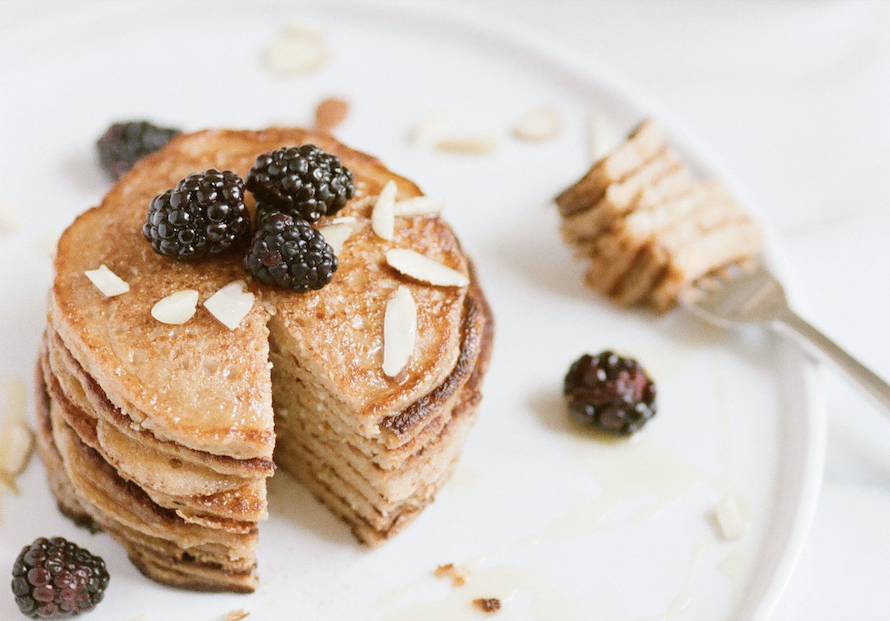
Hot cakes, flapjacks, griddle cakes, frybread or pancakes – whatever your family calls these easy-to-prepare breakfast staples, it’s likely they will be on many relaxed summer weekend menus.
This year, why not serve a hot cake that tastes good and is good for your health too?
By switching out a few simple ingredients, these pancakes with a nutty, delicious flavour
and texture can quickly add important nutrients, fibre and protein to your day. And
because they don’t use traditional processed flour, they are a breakfast option for
gluten-free flap jack fans too!
Quinoa-Millet Hot Cakes with Maple-Flax Syrup
Makes 10 -12 medium cakes.
Taste-tested in the Bite out of Life Kitchen Academy.
Overnight, soak separately:
½ cup uncooked quinoa
¾ cup uncooked millet
Next morning, drain and rinse the grains in a colander and put in a blender.
Get the following ingredients ready to add to quickly to blender:
¾ cup plain yogurt or kefir
1 tsp. vanilla (optional)
1 egg
2 tbsp. shredded coconut (or brown rice flour or tapioca flour)
¼ tsp. sea salt
¼ tsp. cinnamon (optional)
1 tbsp. olive oil or coconut oil
1 tsp. baking soda
Add yogurt/kefir and vanilla to blender with grains and blend until smooth.
Into running blender, add egg, coconut, salt, cinnamon, oil, baking soda.
Turn blender off as soon as ingredients mixed.
Cook hot cakes on preheated griddle or non-stick pan greased with small amount of
coconut oil for first batch to prevent sticking.
Top with fresh fruit and more yogurt or with Maple-Flax Syrup:
Mix maple syrup and flax oil together in equal proportions for a sweet treat that is high
in healthy omega 3s and has a tasty, buttery mouth-feel with no butter required!
Health benefits:
Quinoa: a complete protein, with a well-balanced amino acid profile, makes quinoa
(pronounced keen-wah) a great choice for energy production. It’s also an excellent
source of dietary fibre which can help promote cardiac health and overall healthy
digestion.
Millet: a rich source of both phosphorous and manganese which are important minerals
to support bone health, this ancient grain is growing in popularity in North America
because of its versatility and gluten-free status. It is also high in magnesium which can
aid in lowering blood pressure contributes to heart health.
Omega 3 fatty acids: help reduce inflammation throughout the body which can
contribute to join aches and pains, allergies, asthma or skin conditions. They are also
important to build healthy cell membranes, promoting strong cell-to-cell communication
which has been shown to protect against cancer.

Sounds great Trish. Can’t wait to try these! I don’t normally make pancakes because they are like dessert, this recipe is the best of both worlds, yummy and healthy… Really!! 🙂